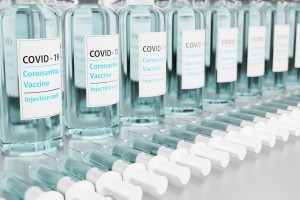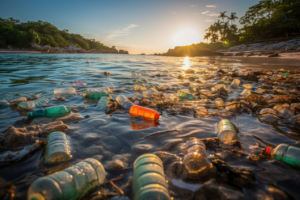
“Urgent need to ramp up production of Corona vaccine”
Geneva: The World Health Organisation, while noting the current week as a “landmark” week with the first vaccinations starting in Ghana and Côte d’Ivoire, and 20 million doses of vaccines delivered to 20 countries, expressed concerns over the relatively small volume of doses being delivered at present.
The first round of allocations this week covered between 2 and 3 percent of the population of countries receiving vaccines through COVAX (COVID-19 Vaccines Global Access – the vaccines pillar of the Access to COVID-19 Tools (ACT) Accelerator of the WHO), and although the WHO termed it as an “encouraging progress”, it stated that the volume of doses being distributed through COVAX “is still relatively small”.
“We currently face several barriers to increasing the speed and volume of production, from export bans to shortages of raw materials including glass, plastic and stoppers,” the WHO Director-General, Dr. Tedros Adhanom Ghebreyesus, pointed out at a press conference last evening (IST).
While COVAX , would deliver 14.4 million doses to further 31 countries in the next week, thus bringing the total number of countries to 51, the WHO called for an ” urgent action to ramp up production” .
“One of our main priorities now is to increase the ambition of COVAX to help all countries end the pandemic,” Dr. Ghebreyesus said, and informed that next week, WHO and its COVAX partners will meet with partners from governments and the industry to identify bottlenecks in production and discuss how to solve them.
He informed that the WHO was working on four approaches:
- To connect companies who are producing vaccines with other companies who have excess capacity to fill and finish, which could help to speed up production and increase volumes. (For example, part of the deal between Johnson & Johnson and Merck announced this week is for Merck to provide fill and finish for the J&J vaccine). WHO said there is a need for more partnerships like this in all regions. WHO can support this process by identifying gaps and providing a “matchmaking” service between vaccine producers and companies with capacity.
- Bilateral technology transfer, through voluntary licensing from a company that owns the patents on a vaccine to another company who can produce them. (A good example of this approach is AstraZeneca, which has transferred the technology for its vaccine to SKBio in the Republic of Korea and the Serum Institute of India, which is producing AstraZeneca vaccines for COVAX. However the WHO is concerned that the main disadvantage of this approach is the lack of transparency).
- Coordinated technology transfer, which would involve universities and manufacturers licensing their vaccines to other companies through a global mechanism coordinated by WHO, which would also facilitate the training of staff at the recipient companies, and coordinate investments in infrastructure. This provides more transparency, and a more coherent global approach that contributes to regional health security. And it’s a mechanism that would increase production capacity not only for this pandemic, but for future pandemics and potentially for the production of vaccines for routine immunization programmes. In fact, WHO had done this before – After the spread of H5N1 influenza in the mid-2000s, WHO supported technology transfer for the production of pandemic flu vaccines to 14 countries, increasing global capacity by more than 700 million doses.
- Many countries with vaccine manufacturing capacity can start producing their own vaccines by waiving intellectual property rights, as provided for in the TRIPS agreement. Those provisions are there for use in emergencies. “If now is not a time to use them, then when? This is unprecedented time, and WHO believes that this is a time to trigger that provision and waive patent rights,” Dr. Ghebreyesus said and thanked India and South Africa for their proposal to the World Trade Organization to waive patents on medical products for COVID-19 until the end of this unprecedented pandemic.
It may be mentioned that in the current week COVAX had delivered vaccines to Angola, Cambodia, Colombia, the Democratic Republic of the Congo, the Gambia, India, Kenya, Lesotho, Malawi, Mali, Moldova, Nigeria, the Philippines, the Republic of Korea, Rwanda, Senegal, Sudan and Uganda, besides Ghana and Côte d’Ivoire.
– global bihari bureau





